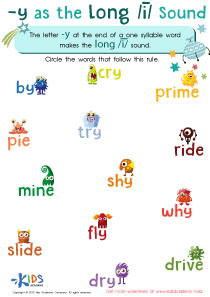Vowel Team Worksheets for Ages 4-7
14 filtered results
-
From - To
Unlock the magic of phonics with our Vowel Team Worksheets designed for ages 4-7! These expertly crafted printables help young learners master essential vowel combinations, enhancing reading and pronunciation skills. Through colorful, engaging activities, kids will explore common vowel teams, building a strong foundation for early literacy. Perfect for classrooms or at-home practice, our worksheets offer a fun, interactive way to grasp the intricacies of vowel sounds. With Kids Academy's resources, give your child the head start they need in reading fluency and language confidence. Download today and embark on a journey of joyful learning!
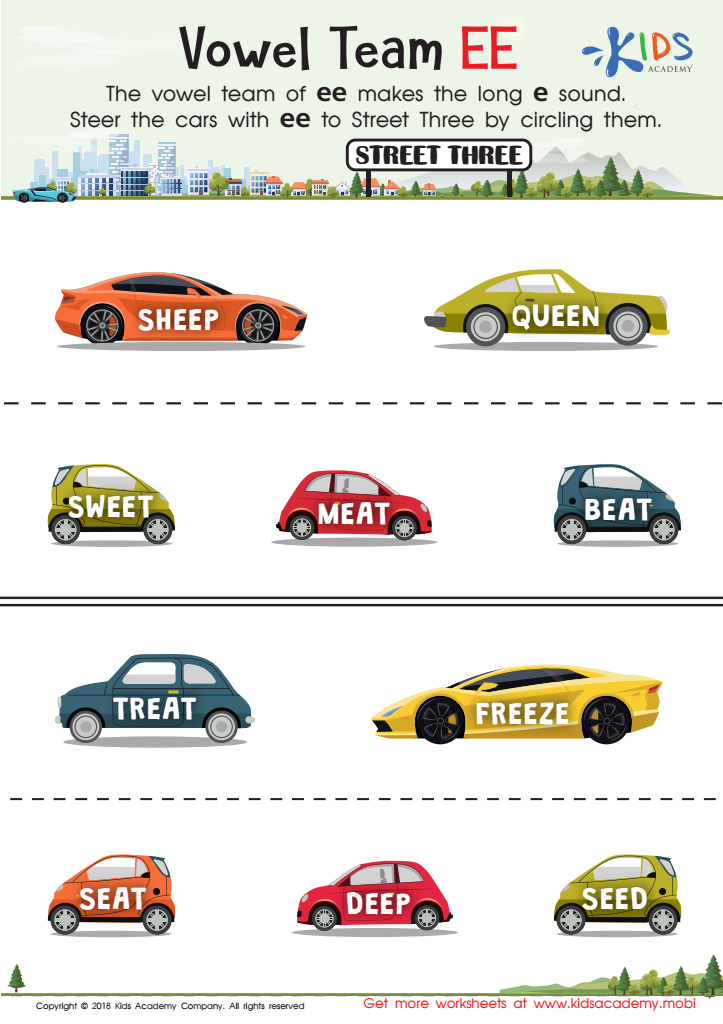

Vowel team ee Worksheet
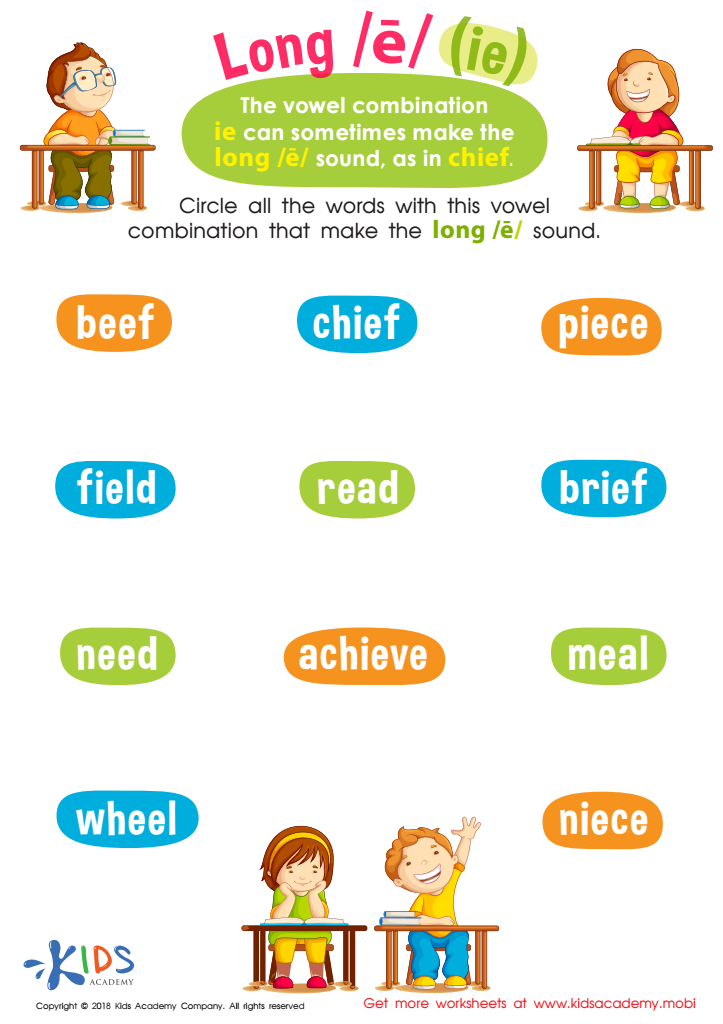

Reading: Long E and IE Worksheet
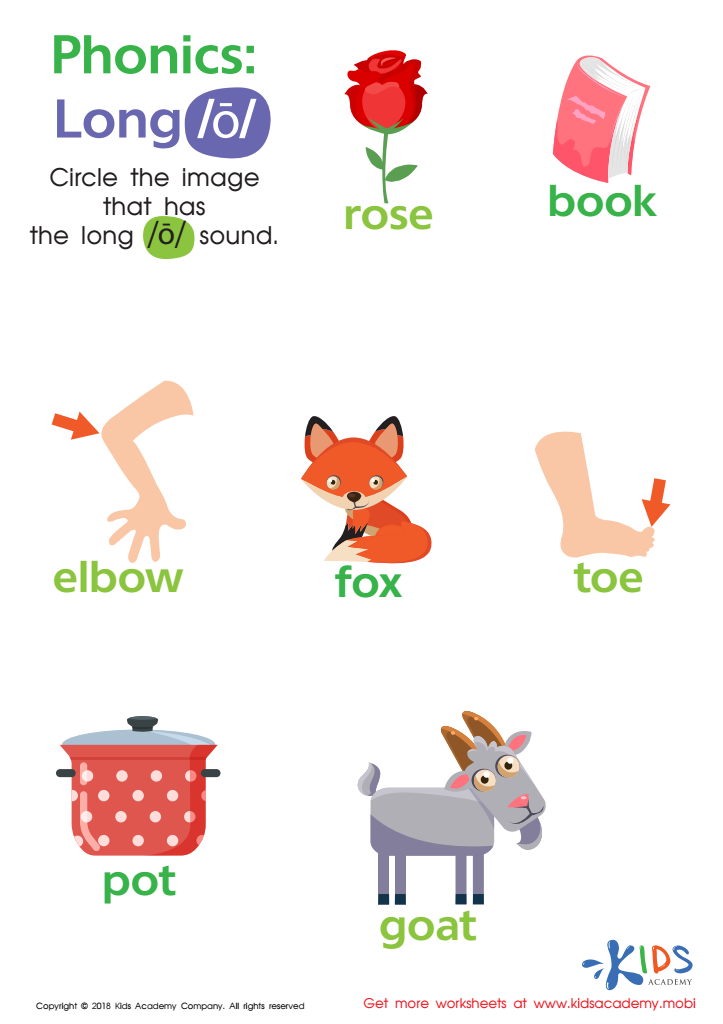

Phonics Long O Reading Worksheet
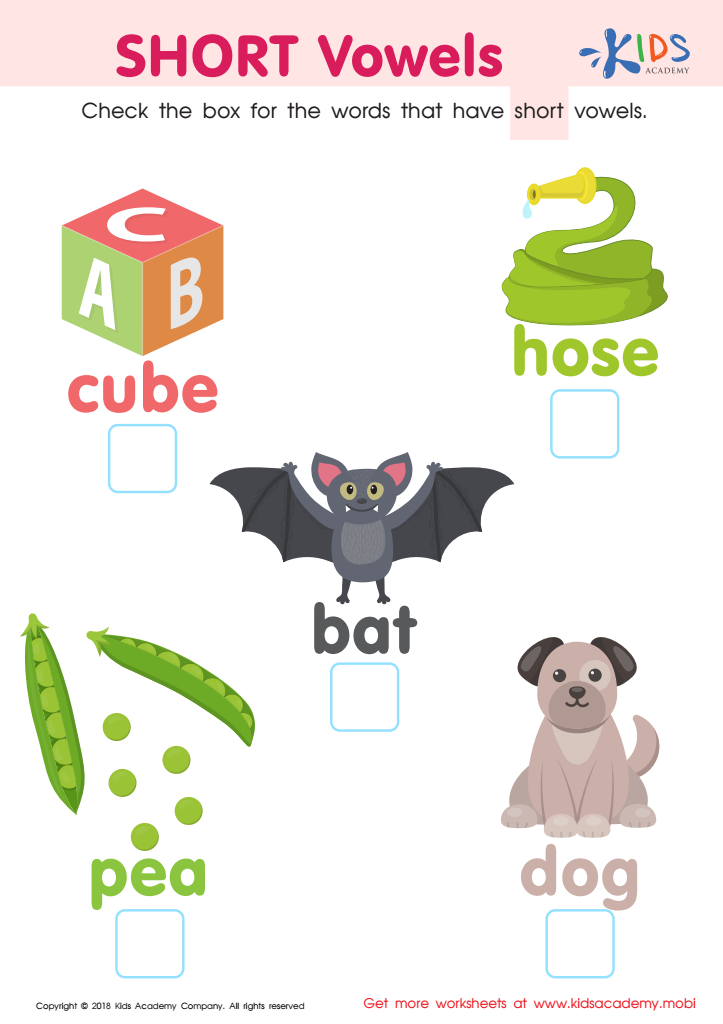

short vowels Worksheet
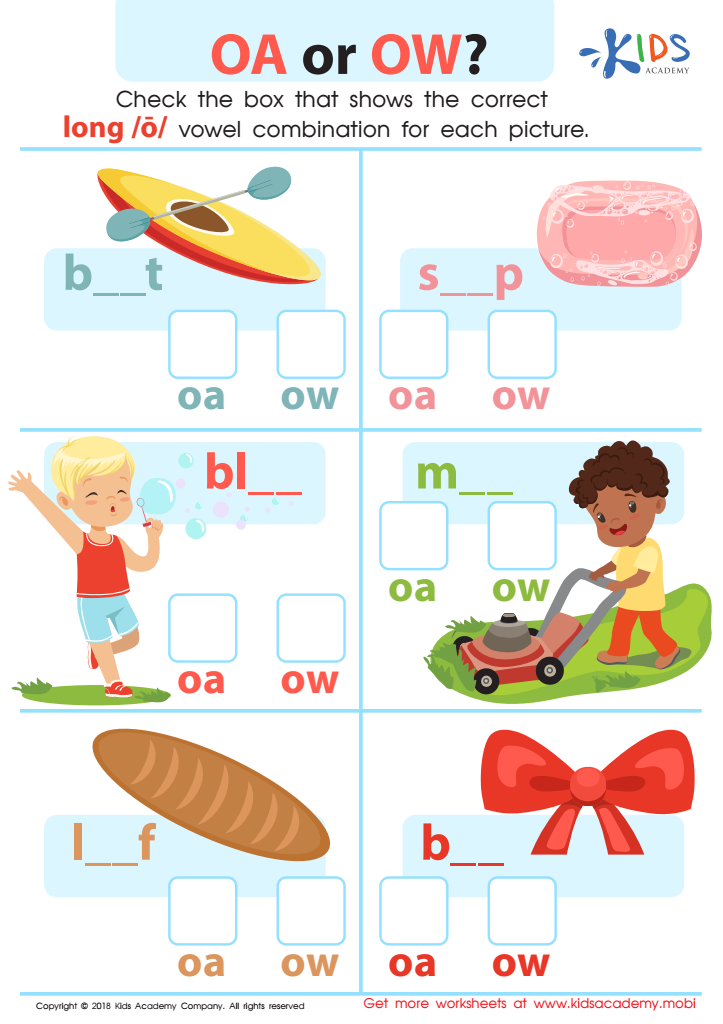

Reading: OA or OW Worksheet
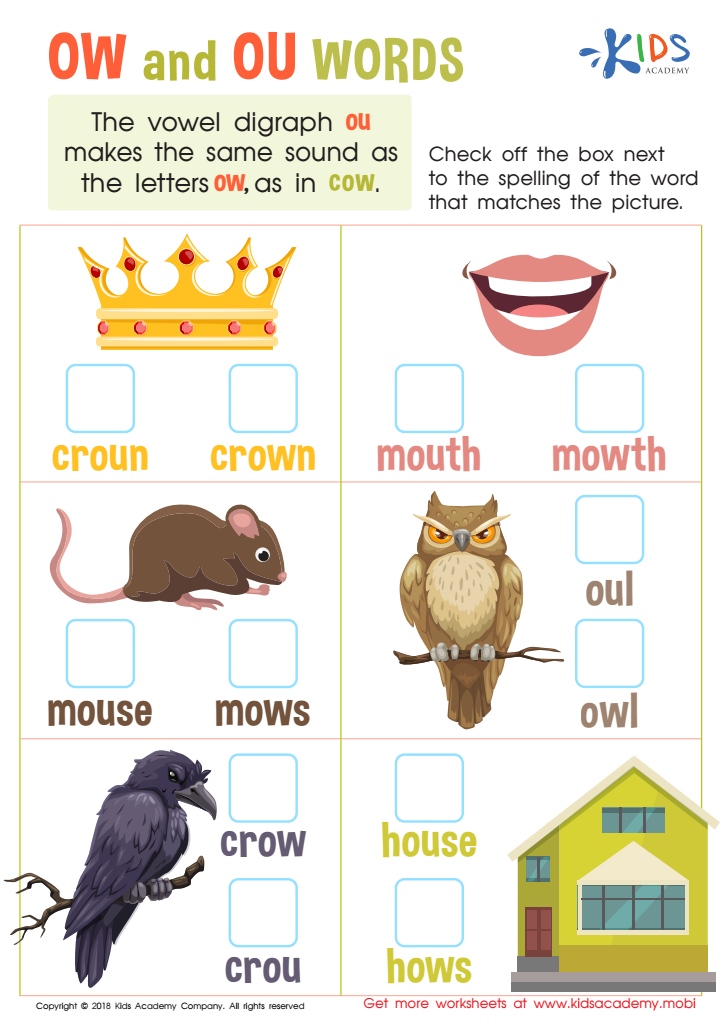

Reading: OW and OU Words Worksheet
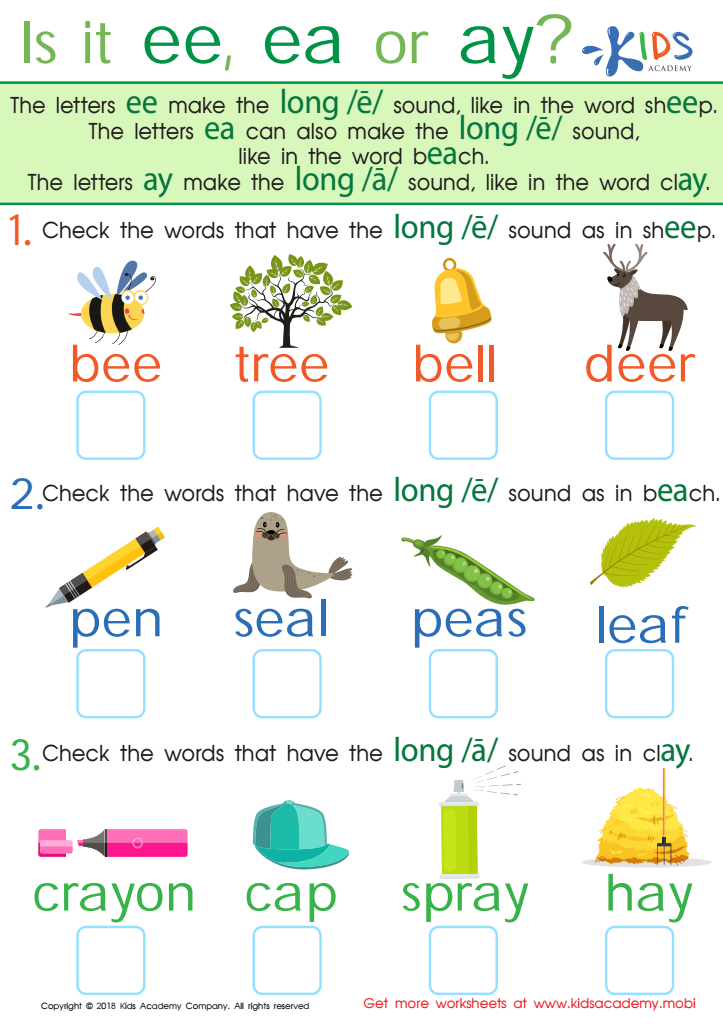

Is It EE, EA, or AY? Worksheet
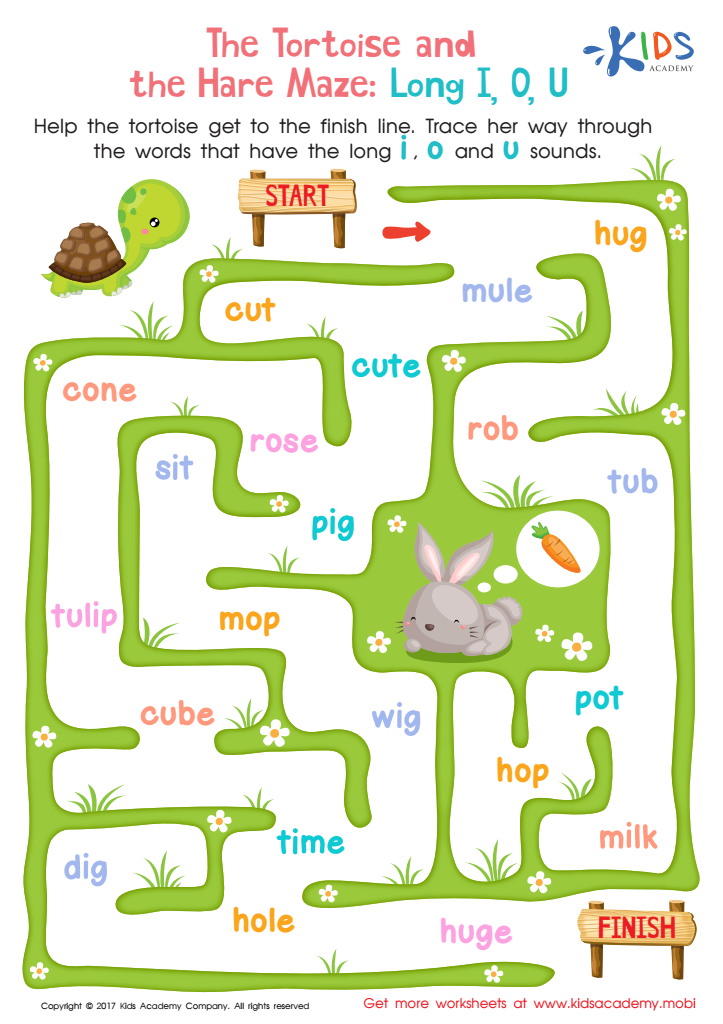

Long I, O, U Words Worksheet
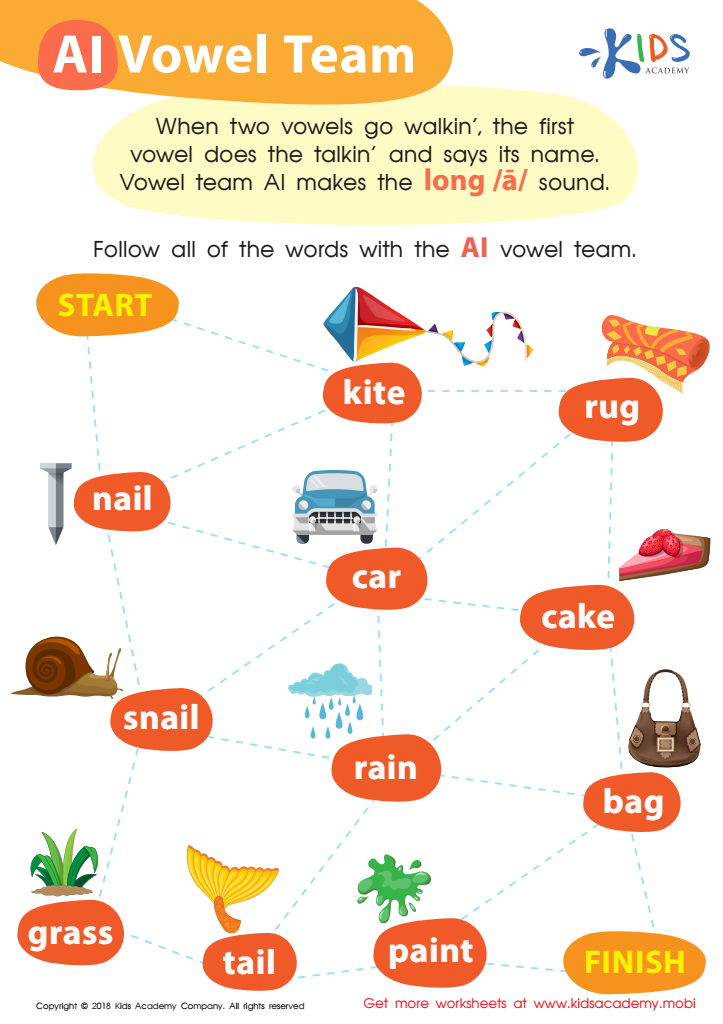

Reading: AI Vowel Team Worksheet
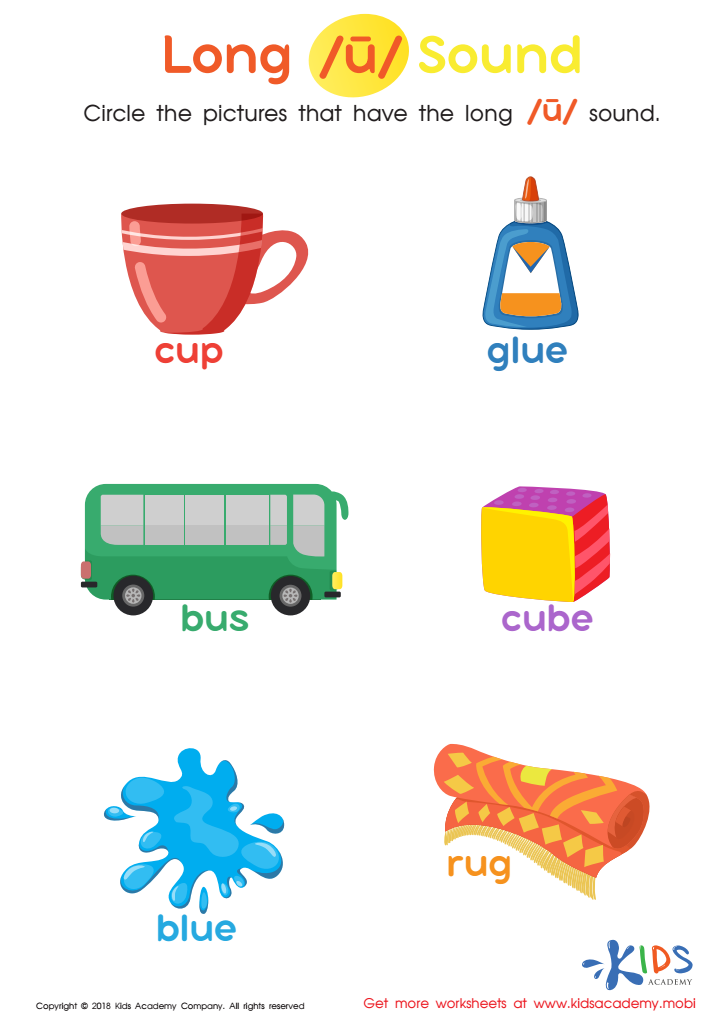

Long «u» Sound Worksheet
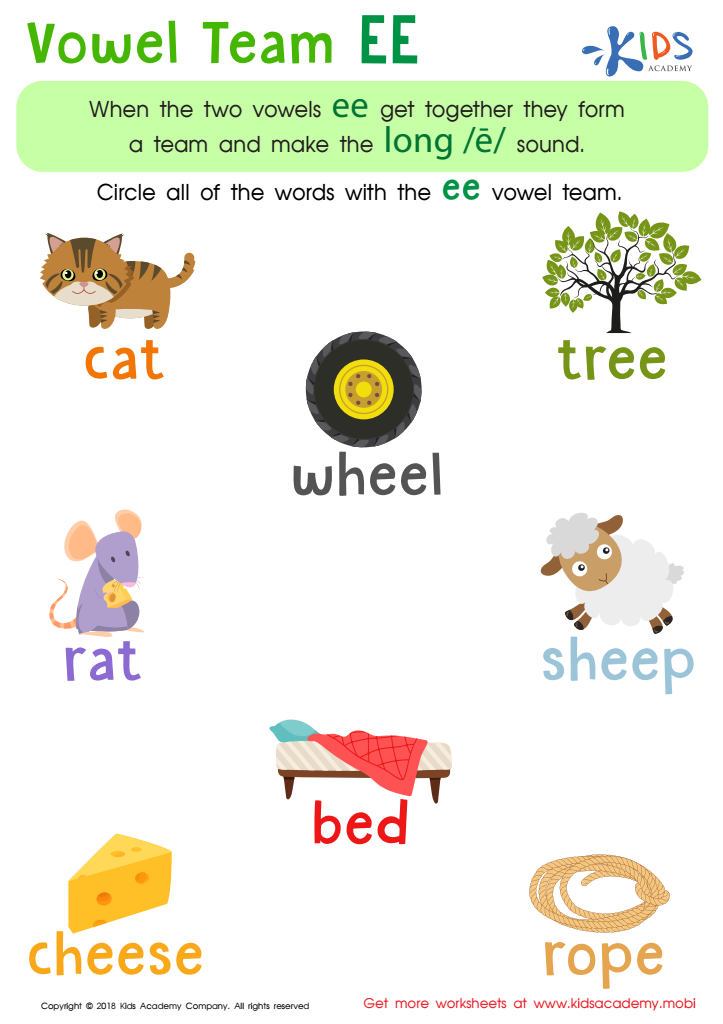

Reading: Vowel Team EE Worksheet


Long and Short Vowel Sentences: Assessment Worksheet
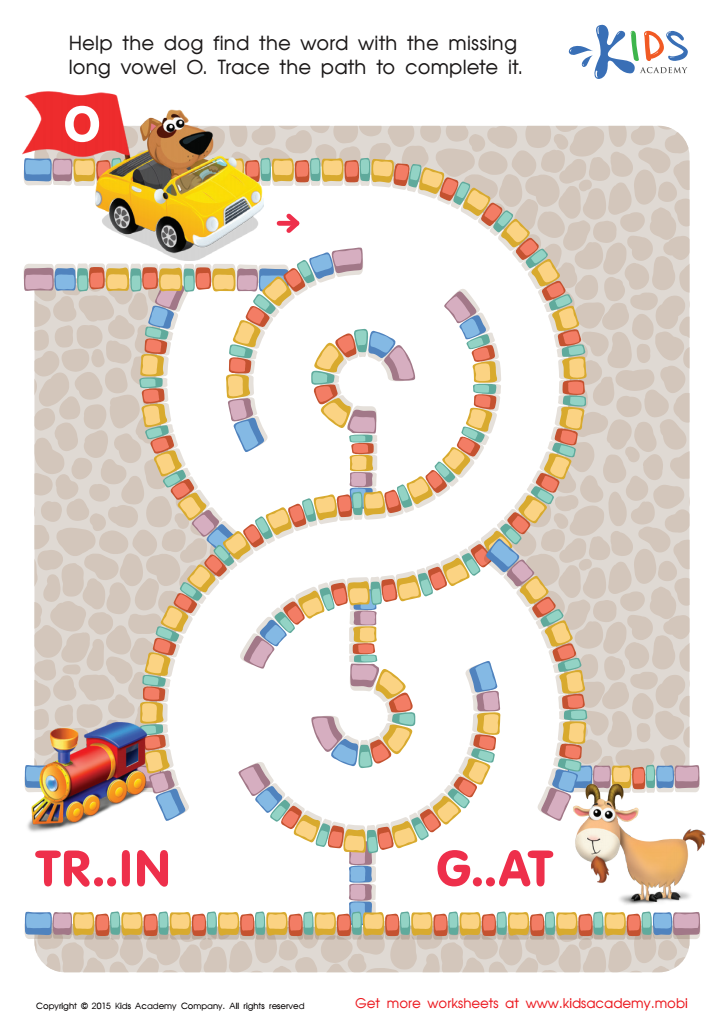

Long Vowel Sound O Worksheet
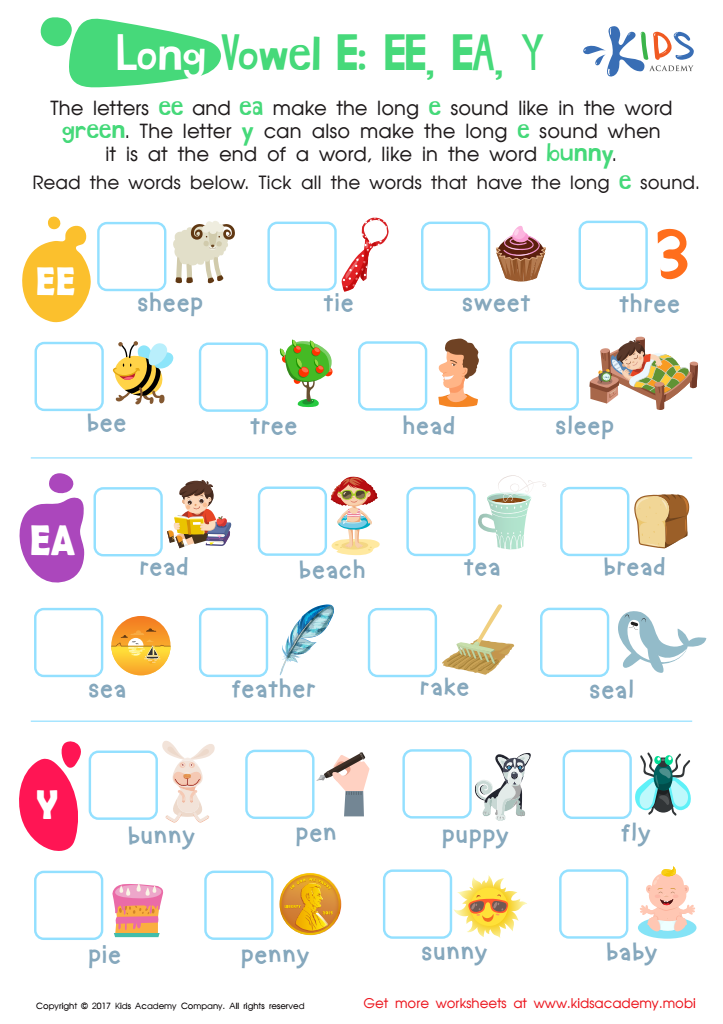

Long Vowel E Printable
Parents and teachers should care about vowel teams for ages 4-7 because these combinations are foundational for developing strong reading and spelling skills. Vowel teams, also known as vowel pairs, occur when two vowels work together to make one sound, such as in "boat" (oa) or "rain" (ai). Introducing vowel teams during these formative years is crucial for several reasons.
First, understanding vowel teams helps children decode words more easily. When children recognize patterns, they can pronounce new words correctly, which builds their confidence and competence in reading. Phonics instruction, which includes vowel teams, provides a systematic approach to reading that empowers kids to tackle unfamiliar words independently.
Secondly, mastering vowel teams enhances spelling abilities. Children who are aware of these patterns can spell words more accurately, using their knowledge of vowel combinations to infer the correct spelling of words that may share similar sounds. This proficiency is particularly useful in English, a language rich with exceptions and unique phonetic constructions.
Lastly, early proficiency in these areas positions children for long-term academic success. Reading and writing are vital skills across all subjects; thus, a strong early foundation helps ensure that children will not struggle with basic literacy as they advance through school. Prioritizing vowel teams in early education promotes better comprehension, communication skills, and a love for learning.
 Assign to My Students
Assign to My Students






